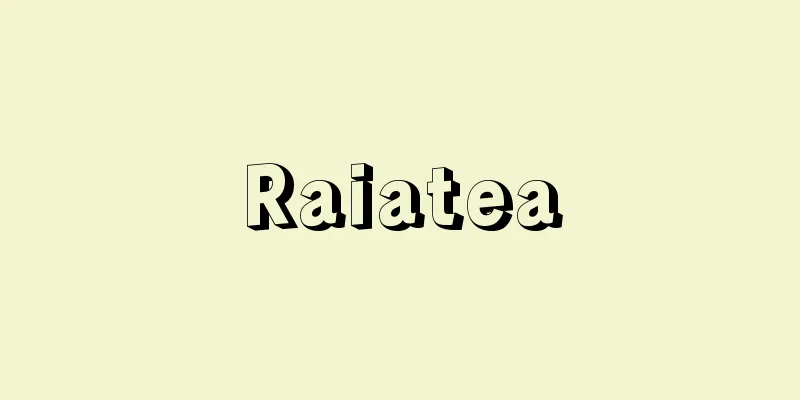Limited land law - Gendenho

|
A law restricting land ownership in China. The most famous law was issued in 7 BC during the reign of Emperor Ai at the end of the Western Han dynasty. Its contents were as follows: (1) feudal lords and nobles were only allowed to own land within their own fiefdoms, (2) the maximum land ownership amount for the Guannai no Kami (Marquis), officials, and commoners was set at 30 sq. m (137 hectares), and at the same time, (3) the number of slaves owned was limited to 200 for feudal lords, 100 for nobles and princesses, and 30 for Guannai no Kami (Marquis), officials, and commoners, and (4) merchants were not allowed to own land or become government officials. Although the maximum land ownership amounts for feudal lords, nobles, and princesses are not specified here, it is estimated that they were set at around 200 for feudal lords, 100 for nobles and princesses, and 30 for the nobles, officials, and commoners, corresponding to the number of slaves owned. This law was scheduled to be implemented with a three-year grace period, and it is said that the prices of land and slaves plummeted immediately after its promulgation. However, it was opposed by in-laws and favorites, and in the end it was not implemented even after the grace period had passed. The law on limited land was intended to limit the development of large landholdings by powerful clans and other powerful people at the time, and to prevent the decline of small peasants, who were the basis of the Han Empire's rule. Even after this failed, the idea of limited land was inherited in subsequent land systems. [Hiroki Shigechika] Source: Shogakukan Encyclopedia Nipponica About Encyclopedia Nipponica Information | Legend |
|
中国における土地所有額制限に関する法。著名なのは前漢末、哀帝の紀元前7年に発布されたものである。その内容は、(1)諸侯王、列侯は各自の封国内においてのみ土地を所有することを認める、(2)関内侯以下、吏・民に至るまでの最高土地所有額を30頃(けい)(137ヘクタール)までとする、というものであり、これと同時に、(3)奴婢(ぬひ)所有数を制限して、諸侯王は200人までとし、列侯・公主は100人、関内侯・吏・民は30人までとする、(4)商人が土地を所有することや、官吏になることを認めない、などの内容が定められた。 なお、ここでは諸侯王や列侯、公主の最高土地所有額が明確でないが、奴婢所有数に対応して諸侯王200頃、列侯・公主100頃、関内侯・吏・民30頃とされていたであろうと推定されている。この法令は3年の猶予期間を置いて実施される予定で、発布とともに土地や奴婢価格が暴落したという。しかし、外戚(がいせき)や寵臣(ちょうしん)の反対にあい、結局、猶予期間を過ぎても実施されることなく終わってしまった。 限田法は、当時の豪族などによる大土地所有の発展に制限を加え、漢帝国の支配基盤である小農民の没落を防ぐ意図をもつものであった。これが失敗に帰してのちも、限田の思想は以後の土地制度に継承されていった。 [重近啓樹] 出典 小学館 日本大百科全書(ニッポニカ)日本大百科全書(ニッポニカ)について 情報 | 凡例 |
Recommend
californite
…It was first discovered in the ejecta of Mt. Ves...
Calcium amphibole - Calcium amphibole
…Amphibole is generally divided into three groups...
Pugachev's Rebellion
The Russian Peasant War of 1773-75. Under the rul...
Kaiyakugo - translation
A bilingual vocabulary and example collection of ...
Pas de Calais (English spelling)
…the strait between the southeast coast of Englan...
Transportation Pool - Unyu Pool
...However, in the process of monopolization, the...
Naniwaza - What are you doing?
A theater in Minami-ku, Osaka City. It began as Ma...
Nogariyasu - Nogariyasu
A perennial grass of the grass family. The culm i...
Lake Hibarako
It is one of the lakes and marshes in the Bandai P...
Frambesia
…Examples include histoplasmosis, a respiratory i...
Fisheries rights system
... This situation changed in modern times, and i...
Thirty Years' War (English: Dreißigjähriger Krieg) German
A war fought in Germany between 1618 and 1648. It...
Mortar - Usu
A type of utensil for cooking and preparing grain...
Skandagupta
...As a result, the Gupta Empire's control ov...
Cohl, E.
…Blackton also created “Ghost Hotel” in which fur...









